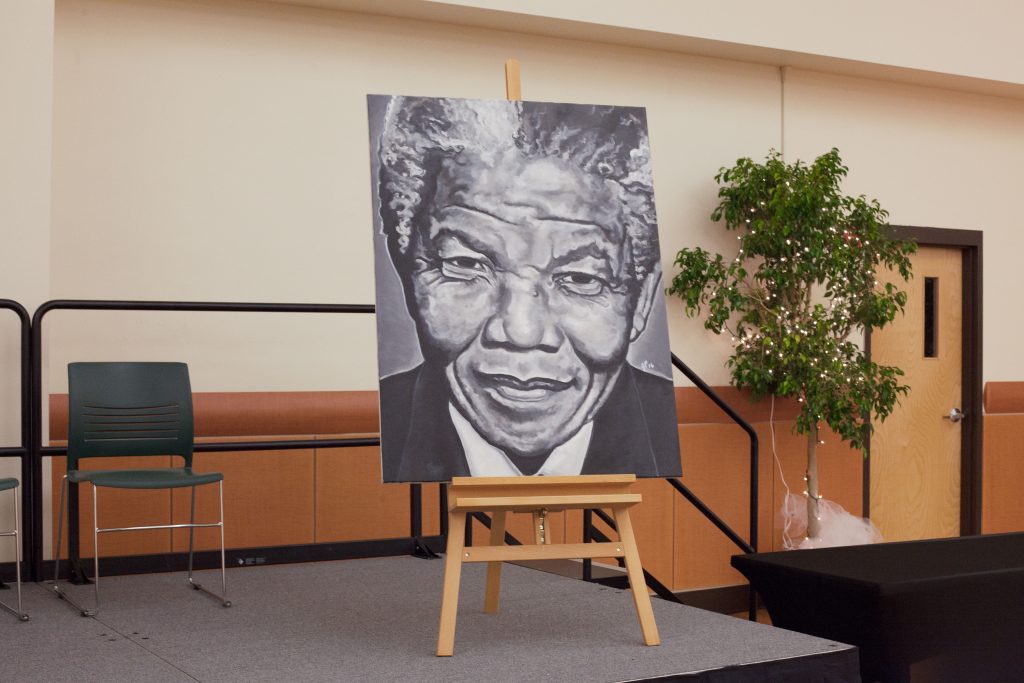
The Mandela Room, located in the University Union and home to a wide variety of events and performances on campus, was given its name 30 years ago as a result of student protests of apartheid in South Africa.
In 1986, Binghamton University students rallied against the system of racial segregation by boycotting companies on campus that had ties to South Africa. They organized demonstrations and demanded that the Couper Administration Building be renamed after Nelson Mandela, the South African politician and revolutionary who fought to end apartheid.
As a compromise, BU administration agreed to rename the Social Room in the Union after Mandela instead. This occurred as Mandela was serving a 27-year prison sentence for his active political involvement in the anti-apartheid movement and served as a gesture of BU’s support for the suppressed people in South Africa.
Students had been protesting the University’s ties to the country for a few years by holding rallies and pickets to protest BU’s investments in South Africa. Clifford Clark, the president of BU at the time, announced his support for the student protests, leading to the renaming of the room and an end to the University doing business with companies linked to South Africa.
This year marks the 30th anniversary of the renaming of the room, and to celebrate, alumni, faculty and students gathered to unveil a new portrait of Mandela, which will hang in place of the original one.
Gillian Patrick, ‘94, double-majored in art and English at BU and was commissioned by the Black Student Union to paint the first portrait in 1994, four years after Mandela was released from prison.
Patrick said that she was never quite happy with the way the painting came out, so when the University contacted her about putting up a plaque attributing the painting to her, she offered to make an entirely new portrait of Mandela instead.
On Sunday, Patrick spoke about why Mandela is still an important figure in today’s society and used in current events, such as police brutality in the United States, to demonstrate why his teachings still matter.
“Nelson Mandela, in his time with us, served an incredible purpose, not only to his country, but to the world,” Patrick said. “And he taught us many lessons, lessons in equal rights and humanity in mankind. At times I’m reflective of the fact that the rights he was willing to fight and give his life to achieve are still not fully granted to many, and the issues related to race are still so ever-present not only in South Africa now but in this country as well.”
Patrick added that she believes everyone has a duty to observe the lessons Mandela taught.
“It’s important because of what’s going on in the country now and what’s going on all over the world,” Patrick said. “Until everybody recognizes that they need to fight for every single one of us, none of us are free and we all put ourselves in the position of it being taken away.”
Brian Rose, vice president for Student Affairs, spoke about the importance of alumni such as Patrick, and their contributions to the University.
“We recognize it as one example of the many contributions of our alumni to the betterment of the education experience at Binghamton,” Rose said. “We acknowledge it for the important contributions art makes to the inspiration that is necessary to transform the world.”


